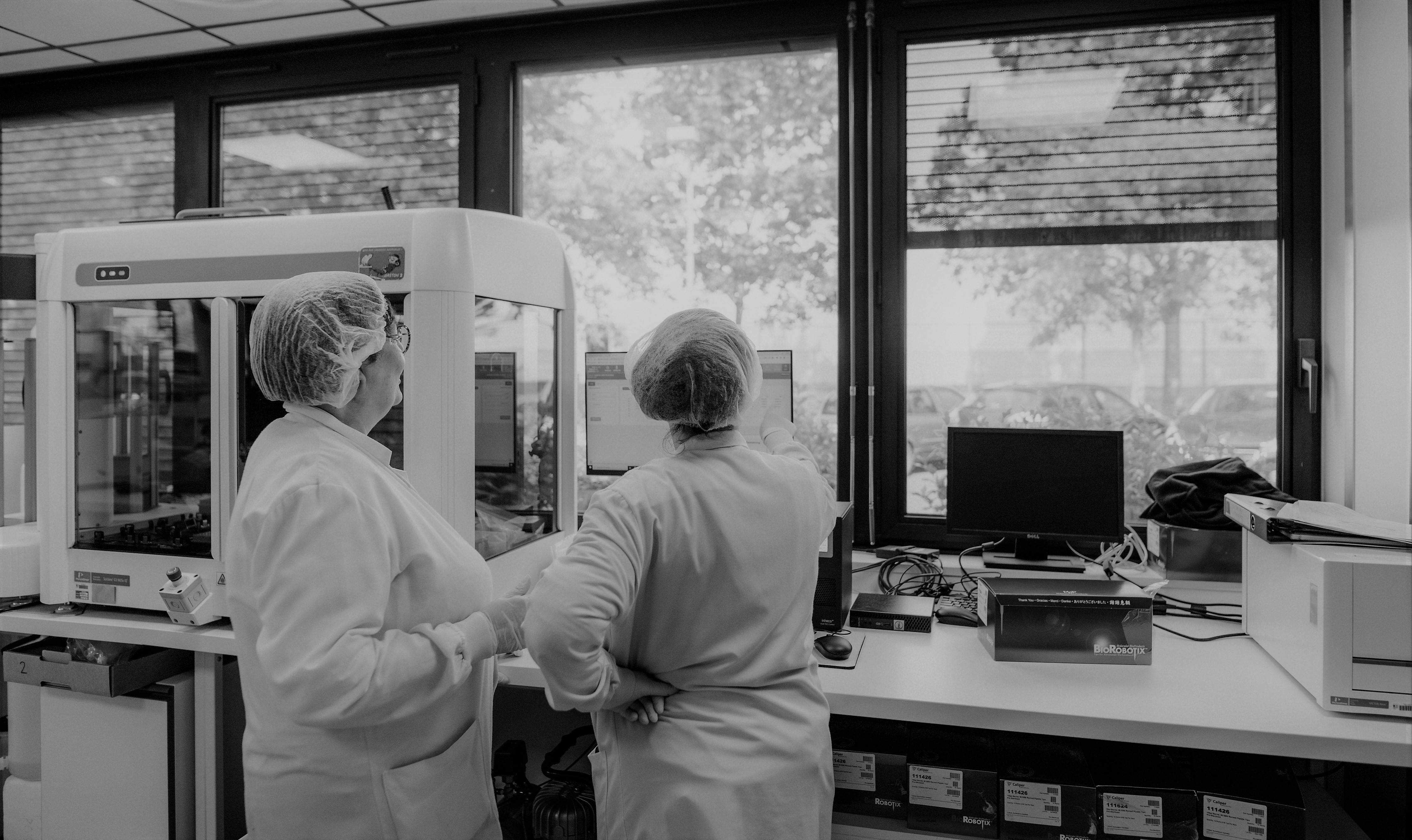[Newsletter No. 1] – Constitutional Oncogenetics
In France, nearly 5% of cancers are linked to inherited constitutional genetic alterations.¹
Genetic testing is recommended for individuals with personal or family histories suggestive of a hereditary form of cancer.
Identifying these predispositions allows for the proposal of personalized follow-up, including:
- Targeted surveillance
- Preventive surgery
These measures are tailored to the associated tumor risks.
Over 5,000 patients tested each year at Cerba Laboratory
Since 2018, Cerba Laboratory has offered diagnostic tools for hereditary cancer predisposition to support cancer patients and their families.
At the start of this year, our constitutional oncogenetics offering is evolving with several new developments.
New design of the PAN-CANCER NGS panel
We have developed the 5th version of our constitutional oncogenetics test (ONCOV5). It includes new genes and subpanels, closely aligned with prescriber needs and the most recent European recommendations.²
This new version also features an updated list of non-coding variants reported as pathogenic or likely pathogenic.
New gene panels in line with the latest guidelines and for inclusion in clinical studies
Our new version of in silico NGS panels incorporates the latest recommendations from the American Society of Clinical Oncology (ASCO) published in July 2024.³ These guidelines promote the targeted use of multigene panels tailored to the clinical needs of each cancer type.
Our panels have been compared with gene lists from other international laboratories and expert recommendations from both French (Genetics and Cancer Group - GGC) and international groups (PanelApp England, PanelApp Australia).
New: The “GGC Kidney Panel” is now available, following its presentation at the 2024 Human Genetics Conference.⁴
List of genes available on request from our constitutional genetics team.
📧 CONTACT THE MEDICAL TEAM
Updated version of pathogenic or likely pathogenic non-coding variants
While most commonly used NGS panels focus on coding regions, particularly in exome analyses for oncology, our new Oncology panel version also includes the detection of deep intronic variants or those located in regulatory regions. These variants are reported as pathogenic or likely pathogenic in the latest versions of reference databases—representing several hundred additional variants.
NEW MEDICAL PRESCRIPTION FORM
FPM_ONCOGENETIQUE_PRED_FR_DEF.pdf
CONSENT FORM
Attestation_Consentement_POSTNATAL_DEF
A new medical prescription form is now available. It has been revised to better meet medical requirements and to comply with new data collection obligations for the annual activity report submitted to the French Biomedicine Agency.⁵
A “theranostic” BRCA1/BRCA2 test for medical oncologists
Until recently, BRCA1/2 gene testing was mainly aimed at identifying families at increased risk of cancer. However, recent therapeutic advances have shown that patients carrying BRCA mutations may benefit from targeted therapies, such as PARP inhibitors (e.g., olaparib, niraparib), which are particularly effective in this context.
For this reason, a theranostic BRCA test (combining diagnosis and treatment decision-making) can be offered depending on the clinical context and therapeutic objectives.
To meet this need, we now offer a dedicated medical prescription form for oncologists:
SIMPLIFIED PRESCRIPTION FORM
This simplified and targeted form is designed to help oncologists, with or without consultation with onco-genetic specialists, to directly prescribe this genetic test without the risk of encountering incidental findings (e.g., unrelated gene mutations) or variants of uncertain significance.
PRACTICAL INFORMATION
- New medical prescription forms
Following the revision of the French Bioethics Law, a copy of the patient's written consent for genetic testing must be included with any request.
(Public Health Code; Article R1131-4-2; Decree No. 2023-1426 of December 30, 2023) - Improved result turnaround time (median of 21 days)
Contact: polegenetmol@lab-cerba.com
KEY TAKEAWAYS
New gene panels based on the latest guidelines and for clinical study inclusion
Analysis of new genes (DGCR8, EGLN1, EPAS1, EXT1, EXT2, MBD4, MTAP, RECQL4, SMAD3, SQSTM1, and WRN)
A “theranostic” BRCA1/BRCA2 test specifically for medical oncologists

